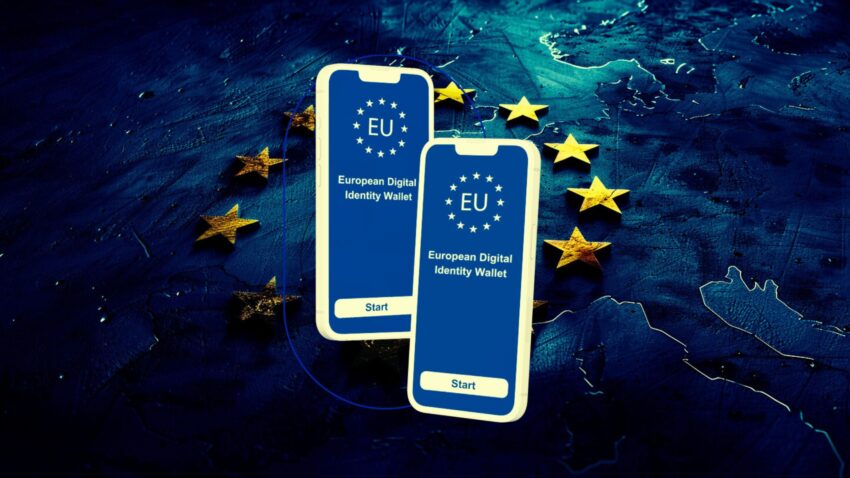If you’re tired of censorship and dystopian threats against civil liberties, subscribe to Reclaim The Net.
As the European Union prepares to roll out its official Digital Identity Wallet, Visa Europe’s Head of Digital Identity, Marie Austenaa, has championed the initiative as a turning point for financial services.
But even as its alleged benefits are being spotlighted, from streamlined banking to cross-border authentication, serious questions around privacy, civil liberties, and the implications of centralized digital identity are surfacing alongside the optimism.
Speaking at Money 2020 in Amsterdam, Austenaa called the Digital Identity Wallet a “gamechanger” for the financial sector, describing it as a tool that could significantly simplify customer onboarding and payment authentication across the EU. Set to be deployed in at least one form by every member state by 2026, the system is expected to become fully operational and mandatory for service providers by 2027.
According to Austenaa, the Wallet will allow users to verify their identity through government-issued credentials stored digitally, eliminating the need for banks to rely solely on their own apps or systems.
“One of the exciting things is that there are certain mandatory requirements around the wallet, it must be used to authenticate a payment transaction, it’s written there, that’s at least the view we have taken,” she said.
“That sets certain obligations of the banks, if this really is happening, which I think it is, by 2027 we need to see some changes in the way payment is being authenticated.”
Yet while the technical promise of such a system is clear, the concentration of personal data into a unified digital format raises deep privacy concerns. Civil liberties advocates have warned that any system that centralizes identification could quickly become a tool for surveillance if not strictly limited in scope and oversight.
The risk of misuse, especially if access to the Wallet becomes tied to essential services, could create a structure where individuals are effectively required to participate in the system to function in daily life.
The potential for function creep, where a system introduced for one purpose expands into others without adequate transparency or consent, is also a significant concern. Although Austenaa pointed to future possibilities like verifying income or IBAN details, each new use case adds complexity and increases the exposure of sensitive personal data.
Without meaningful safeguards, it becomes difficult for users to control how their identity is shared or reused.
While Austenaa framed the Wallet as a way to separate identity management from banks, thereby enabling trusted third parties to handle verification, this too prompts questions about who these entities will be and how much oversight they will face.
The system may reduce friction for businesses, but its design could also make it easier for private companies or state agencies to track or profile individuals across platforms and services.
“2027 is like tomorrow if you work in a bank,” Austenaa said, expressing concerns about how quickly institutions will be able to adapt.
She referenced a successful implementation of a real-time payment using the Wallet but admitted that technical integration with systems like access control servers remains a challenge. “We were lucky we had a bank with a super flexible team around ACS,” she said.
Her worry is not just about readiness, but also that banks may spend more time debating the adequacy of the system than seizing what she sees as an opportunity.
Yet for privacy advocates, this deliberation is precisely what is needed. The stakes are not simply about efficiency or convenience but about ensuring that identity systems respect individual autonomy, minimize data collection, and avoid creating new forms of digital dependency or exclusion.
If you’re tired of censorship and dystopian threats against civil liberties, subscribe to Reclaim The Net.
The post Visa Europe Digital ID Chief Calls EU Digital Identity Wallet a “Gamechanger” for Payments, Envisions Broader Uses Like Income Verification appeared first on Reclaim The Net.
Click this link for the original source of this article.
Author: Ken Macon
This content is courtesy of, and owned and copyrighted by, https://reclaimthenet.org and its author. This content is made available by use of the public RSS feed offered by the host site and is used for educational purposes only. If you are the author or represent the host site and would like this content removed now and in the future, please contact USSANews.com using the email address in the Contact page found in the website menu.





